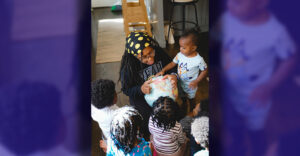Illinois’ planned expansion of broadband internet access will create thousands of jobs, boost workers’ wages and help bridge rural-urban and racial divides in online access, researchers with the Illinois Economic Policy Institute and the Project for Middle Class Renewal at the University of Illinois at Urbana-Champaign found in a recent study.
In 2019, 83% of Illinois residents had access to broadband internet. Federal and state investment is expected to connect 238,000 households, businesses and farms to broadband by 2026. In total, the researchers found, the investment will boost the state’s labor income each year by $843 million and create about 25,000 jobs, both permanent and temporary.
Advertisement
The expansion will generate enough tax revenue to offset the state’s investment within four years of the completion, said study co-author Frank Manzo IV, executive director of the Illinois Economic Policy Institute.
“I can’t think of something that is so universally beneficial to everybody, that touches every corner of the state,” said Robert Bruno, a study co-author and the director of the Project for Middle Class Renewal.
Advertisement
The funding for the state’s broadband expansion comes from the state’s $400 million Rebuild Illinois infrastructure program enacted in 2019 and the federal Infrastructure Investment and Jobs Act signed into law by President Joe Biden last year. The researchers estimate that the state is poised to receive a total of about $1 billion in funding for broadband expansion by 2025. Since 2020, $162 million in expansion funding has already been invested in Illinois, connecting 39,000 homes, farms and businesses to broadband internet, the study shows.
Manzo said the jobs created by the investment will come from construction and supply sectors during the construction phase, as well as from jobs created in retail, restaurants and other small businesses when the investment boosts wages for workers, who in turn will put spend more in their local economies.
“Residents who have access to broadband internet are more likely to be employed, and when they are employed, they earn higher incomes,” Manzo said.
John Fletcher, a broadband analyst with Kagan, the media research unit of S&P Global Market Intelligence, said he wouldn’t be surprised if the study’s projected numbers were “hit and eventually surpassed.”
“Broadband’s kind of become a utility that we need; it’s not (just) something that’s nice to have now,” Fletcher said. “It’s something that every American needs to survive properly in the 21st century.”
Researchers found that when controlling for other factors, broadband access is associated with annual income increases of 3% for Hispanic workers, 5% for white workers and 7% for Black workers.
Researchers hope the expansion will also help close Illinois’ digital divide, which slices the state along both racial and geographic lines. In suburban Chicagoland, 88% of residents had broadband access in 2019, as did 82% of city residents. Meanwhile, only 76% of Downstate residents were connected. And in Chicago, 90% of white residents had broadband access, a much higher level than Black and Hispanic residents, who are connected at rates of 78% and 79%, respectively.
Data from the University of Chicago’s Data Science Institute shows significant disparities between Chicago’s most-connected neighborhoods and its least. In the Loop and Near North Side, researchers found more than 94% of households are connected to the internet. In Burnside and West Englewood, fewer than 62% of households are connected; and in areas of Roseland and East Garfield Park, broadband connectivity drops below 50%.
Advertisement
The COVID-19 pandemic, Manzo said, highlighted the necessity of high-speed internet. “There’s a growing acknowledgment that this access to reliable high-speed internet has become an essential part of daily life and commercial activity,” he said.
“It’s a job skill also,” Bruno said. “And it strikes me that that’s exactly where public policy should be invested. You’re investing in broader infrastructure, which is good for the larger community, the state, but then you also invest in your people.”
Researchers hope broadband expansion will help rural parts of Illinois attract and retain health care workers by increasing access to telemedicine. They also hope to address population decline Downstate by making it more feasible to work remotely in some areas, Manzo said.
Despite what the researchers describe as “historic levels of investment,” they found that 13% of Illinois residents will still lack broadband access in 2026. Investment to cover those remaining residents could cost more than $3 billion, the authors estimate.






